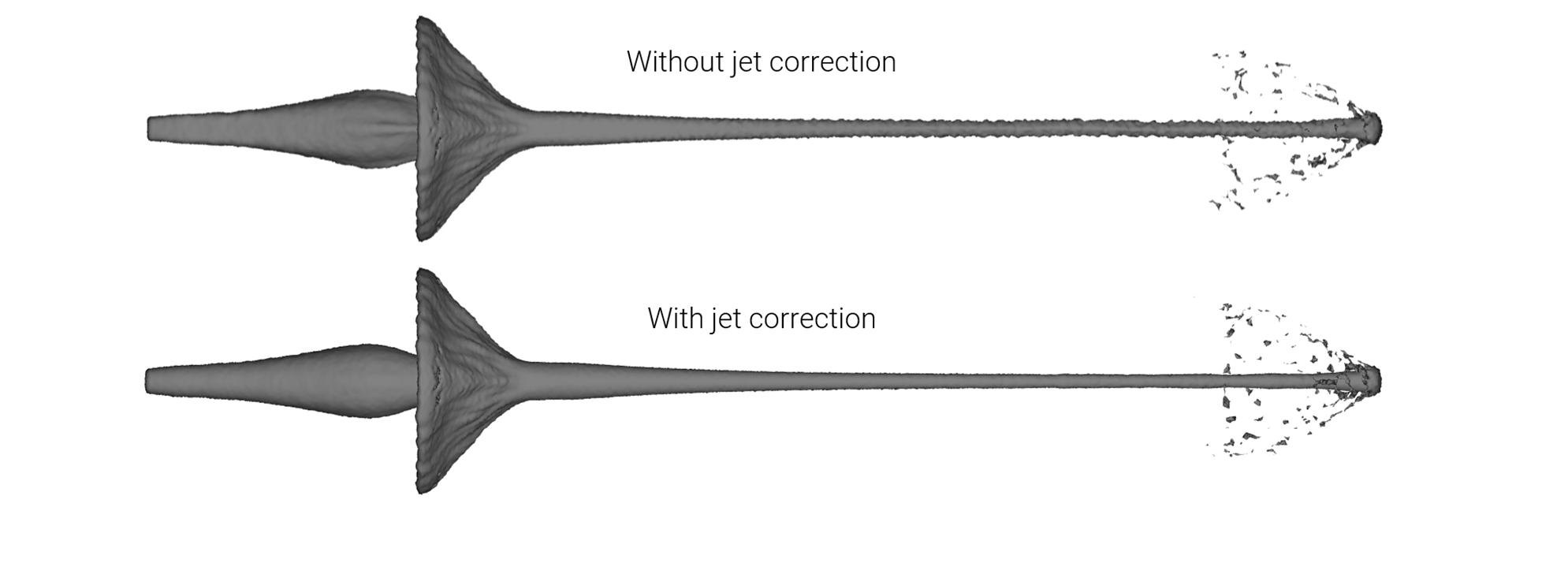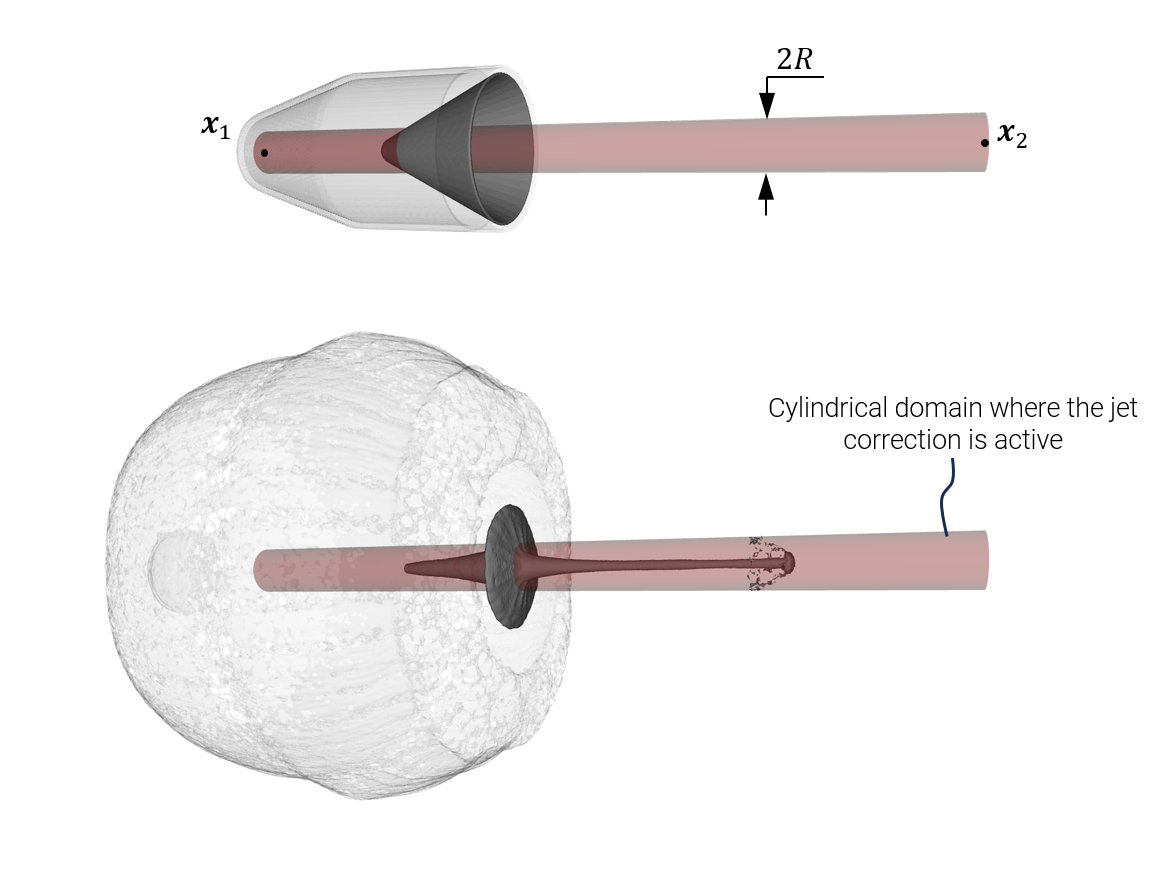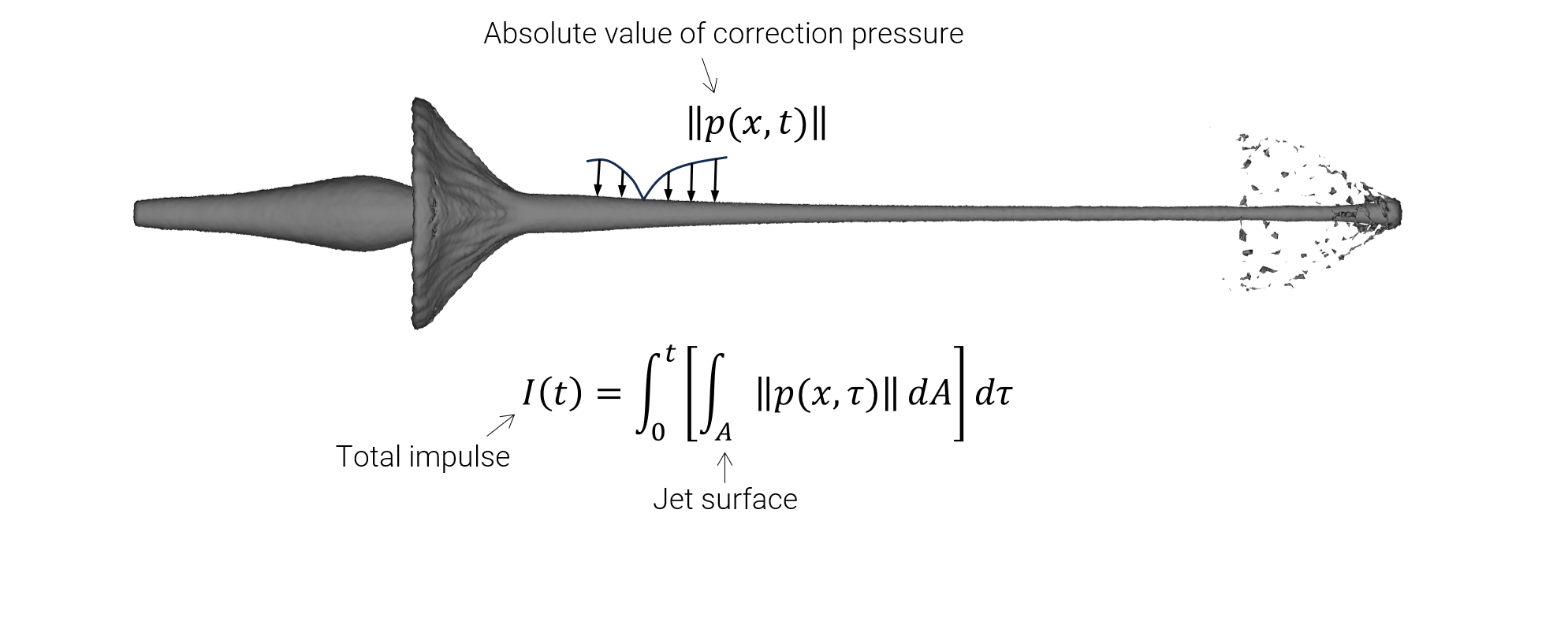PARTICLE_SPH_JET
Particle
Beta command
This command is in the beta stage and the format may change over time.
sid
$x_1$, $y_1$, $z_1$, $x_2$, $y_2$, $z_2$, $R$, $\xi$
$v_{min}$, $m_{min}$, no_ecc, no_corr
Parameter definition
Description
This command is exclusively used when modelling the formation of shaped charge jets. Its purpose is to collect and output jet data and to enhance the accuracy of the simulated jet formation process.
The enhancement is based on the assumption that physical variations in the jet diameter have a significantly larger wave length than the distance between individual SPH particles. High frequency surface variations (spatially) are smoothed with a mild surface pressure. The pressure (positive or negative) is applied locally where non-physical surface variations are detected. This prevents a premature jet fragmentation.
The artificial surface pressure also compensates for geometrical discretization errors caused by an initially Cartesian distribution of SPH particles. The compensation results in a jet with a more circular cross section. Note that the need for an artificial pressure is reduced with a finer discretization and it will approach zero in the limit.


The resulting artificially applied impulse is (together with jet tip velocity and displacement) reported to the file sph_jet.out. The jet tip displacement is calculated from the initial location of the cone base. The command also generates the files sph_jet.bout and sph_jet_cumulative_mass.bout, which are in binary format.

The parameter $\xi$ is dimensionless and controls the strength of the applied jet correction pressure. Parts of the slug travelling at a velocity smaller than $v_{min}$ (in the jet direction) are omitted from the jet length calculation. Jet tip fragments with a mass smaller than $m_{min}$ are also excluded from the jet length and velocity calculations.
The artificial stabilization forces acting radially on the jet can be disabled with parameter no_ecc.
Parameter no_corr is used to completely disable the jet correction. This is useful when only the files generated by the command are needed.
